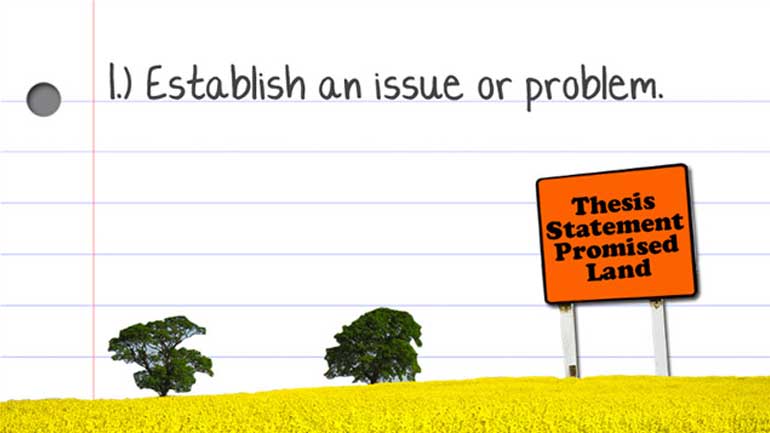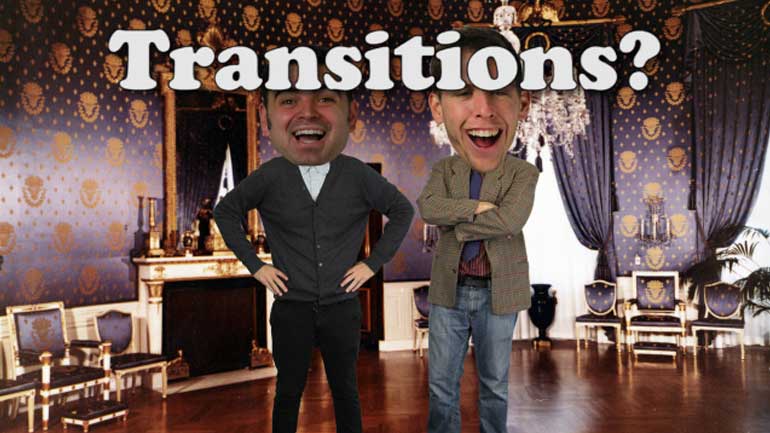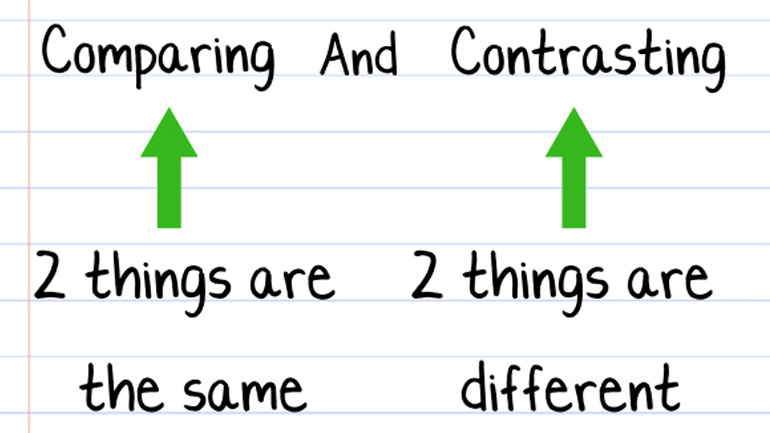ShmoopTube
Where Monty Python meets your 10th grade teacher.
Search Thousands of Shmoop Videos
Writing Elements and Process Videos 47 videos
Choosing a topic can be extremely difficult—even more difficult than deciding which Ben & Jerry's flavor to try next. No, scratch that. Nothing w...
No busque una palabra negativa. Sino una palabra que pueda ser positiva. Tales son "no se caiga", " no molestes a tus maestros" "no se coma toda...
Reading repetitive essays can bore teachers to death because the essays repeat the same ideas repetitively. You don’t want your teacher to get bo...
How to Know If Your Thesis Sentence Is Actually a Thesis Sentence 2356 Views
Share It!
Description:
We'll teach you how to get your thesis statement to stand on its own two feet instead of wobbling around like a newborn Rudolph. No stumbles allowed, but glowing noses are certainly encouraged.
Transcript
- 00:04
How to Know If Your Thesis Sentence Is Actually a Thesis Sentence, a la Shmoop.
- 00:09
Would you be able to pick a thesis statement out of a line-up?
- 00:13
If, say… it had accosted you in the park and stolen your purse?
- 00:18
Hopefully it will never come to that. Regardless, you should be able to spot a thesis sentence
- 00:22
when you see one… and you’d better be able to recognize a pretender, too.
Full Transcript
- 00:28
Your thesis statement is one that sums up your entire argument. If your teacher is feeling
- 00:32
particularly lazy, he should be able to read just your thesis and figure out what you’re
- 00:37
trying to say. Your thesis needs to do four things.
- 00:46
First, it needs to take a stand. Here’s a sample thesis without a leg to
- 00:53
stand on: “A juice maker provides a person with a lot of awesome health benefits.”
- 01:00
That sentence is not a thesis sentence. That sentence falls right over, spilling juice
- 01:04
all over the place, and staining your favorite shirt.
- 01:08
Second, your thesis needs to justify discussion. Honestly, is anyone going to want to talk
- 01:14
about your awesome juice maker? Unless this is an infomercial, then no.
- 01:25
Third, your thesis needs to express one main idea.
- 01:30
Not two. Not half an idea. One.
- 01:34
Finally, your thesis needs to be specific. Hone that thing into a point so sharp you
- 01:39
could poke somebody’s eye out.
- 01:42
Let’s go back to that horrible thesis statement about a juicer. It’s so dull, it wouldn’t
- 01:48
pop a balloon.
- 01:51
What about this one instead:
- 01:53
“Juicing provides nutrients that a person doesn’t normally get from their daily meals.”
- 01:58
It meets all four requirements:
- 02:02
Takes a stand.
- 02:04
Justifies discussion.
- 02:05
Expresses one idea.
- 02:07
Is super specific.
- 02:09
Now there’s a thesis sentence with a leg to stand on.
- 02:13
Especially if it’s been juicing.
Related Videos
This video offers some rules of thumb for writing a good introduction. It covers everything from tone (confidence is key!) to phrases and clichés...
Even the best essays can go wrong in the conclusion—this video covers what not to do in a conclusion to help avoid any essay-ending problems. The...
You want to be as picky with your citations as Goldilocks was with her porridge—not too many, not too few... juuust right. You want to prove that...
Want even more deets on wordiness? Click here to review. Or take a look at our entire grammar section for all the goods.
Want even more deets on Run-on Sentences? Click here to review. Or take a look at our entire grammar section for all the goods.













































